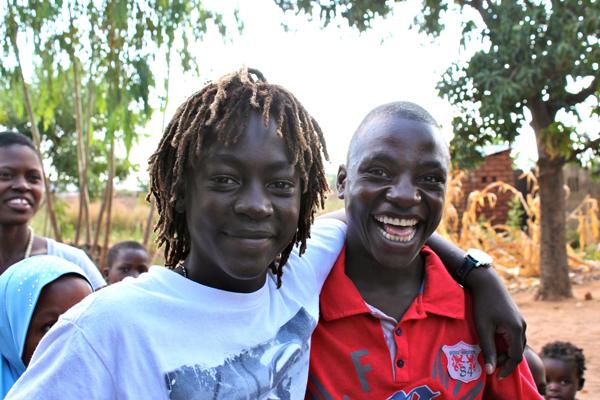Look for a billboard on the right and a sign on your left. There’s a dirt road. Turn there.
In this part of the world, most of the streets have no names. So the directions we were given to find the new compound where my son’s Malawian relatives relocated a few months earlier were pretty specific given the circumstances.
We had hoped to be able to visit with Vasco’s 16-year-old half-brother, Juma, his Aunt Esme, and a handful of cousins and other relations for a couple of hours. By the time we found the family’s new compound, we had less than an hour before we had to get back on the road, meet the rest of our traveling companions, and head north before the sun fell.
I was heartbroken. But when we pulled up in our van, Vasco’s relatives were so happy to see us (and vice versa) that even the woefully short visit felt richly blessed. It had been three years since we’d seen each other. The last time was in May 2010 when Vasco, my husband, and I traveled from California to Blantyre for our adoption hearing. We spent a month in Blantyre and were able to get to know Vasco’s extended family (or, sadly, what remains of it) and begin piecing together our son’s complicated biography.
Since our last visit, Vasco, now 13, has grown about a foot and then some. He’s also traded his close-cropped “Obama cut” for Bob Marley-esque locks. Vasco wasn’t the only one who’d changed – visibly and otherwise.
Malawi is one of the poorest countries on the planet, with more than 9 million people living on about $1.25 a day. HIV/AIDS, which we believe claimed the lives of Vasco’s birth parents before he would have entered kindergarten, remains a critical health issue. Among 15- to 49-year-olds, the HIV/AIDS rate hovers above 10 percent despite widespread efforts to combat the fully preventable disease.
Malaria, tuberculosis, and diarrhea-related fatalities remain high in Malawi. So does unemployment, particularly among younger workers in urban areas such as Blantyre, where it is approximately 70 percent.
Read the Full Article

